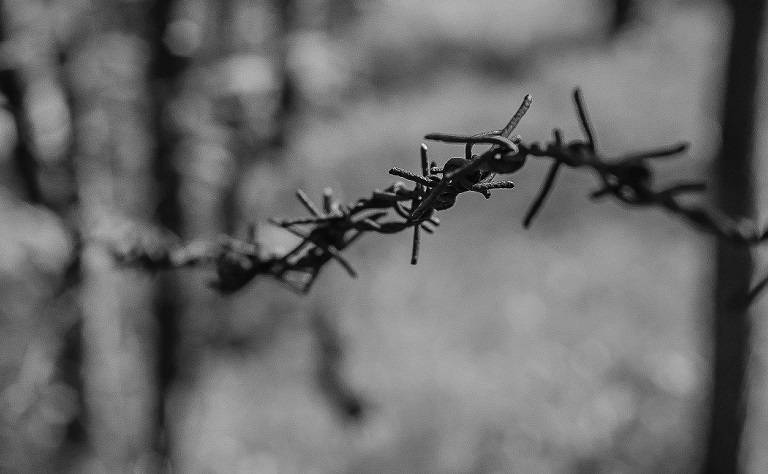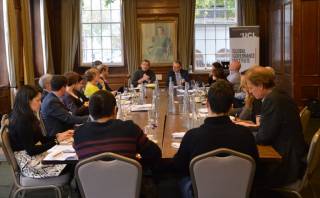Torture Prohibition and Prevention in Different Settings
20 November 2017
An interview with Ed Cape, until recently Professor of Criminal Law and Practice at the University of the West of England, Bristol.

To what extent does early access to legal aid and intervention by lawyers help prevent torture?
A lot of international bodies, including the European Committee for the Prevention of Torture (CAT), all say that having immediate access to a lawyer at police stations is an important protection against torture. Empirical evidence that establishes that early access to a lawyer is effective in preventing torture is limited. I mean, I want to believe it is the case, but more evidence is needed.
So, is there any way to test this?
I suppose you can look at it in high-level terms: you can see if there is any correlation between countries where you do have an effective system providing legal advice at police stations and the statistical evidence of torture and other forms of ill-treatment. But, obviously, that would tell you only if there is a correlation, it would not establish a causative effect.
Other factors come into play as well, for example, whether police interrogations are electronically recorded, or how well the transition from arrest to detention is regulated. We know that, in many countries, the police may use unlawful forms of conduct during this transition period (when the person is out of the police station but not yet at the place of detention). We also know that in some countries - Ukraine is an example historically - there is a high incidence of informal, unregulated detention. The police may detain someone off the books, and that person may or may not end up having his or her detention formally recorded. Even if it is recorded, it will end up being recorded as having started at a much later time than was actually the case.
So the question whether access to a lawyer can prevent torture is, of course, important, but there is a complex mix of other factors which also play an important role.
What role does politics play in these scenarios?
Politics comes in in a number of different ways. It is probably true that in many - if not most - countries, politicians and members of the judiciary are willing to close their eyes to certain practices because they do not want to 'rock the boat' but also because they know that they do not provide the police with enough resources and skills in order for them to be able to carry out proper investigations by lawful methods. I think members of the judiciary often know, or strongly suspect, that a confession has been obtained by unlawful means, but they are not willing to allow that matter to be litigated. They would rather keep it underneath the blanket.
But it is also political at another level: In order to conduct empirical research, you need access to police stations. In most countries, the police are reluctant to let outsiders in and political pressure is necessary to allow access. However, in many cases, the political willingness to apply this kind of pressure is simply missing.
Do you think the most vulnerable groups of detainees might not be terrorist or migrants, because there is a lot of attention already dedicated to them, but other groups of people (in situations of less sensitive interrogations) that are normally neglected?
This is an interesting point. To be able to answer this, we need to understand why torture is carried out - and there are a number of reasons. For example, a senior police officer from Pakistan once told me: "Well, if you do not want my officers to torture, then you have to provide us with the skills and resources to be able to investigate by other means". So, in many settings, torture is a quick and easy way not to investigate a crime but to get a confession which will result in a guilty plea that will 'solve' the case.
But there are also other reasons. Gender or ethnicity might play a role - for example, in situations where police are mainly from one ethnic group and people arrested are from another group, torture may simply be used for the purposes of punishment or exerting power. Additionally, in many countries, the police are very poorly paid and torture might be part of a whole structure whereby police use arrests in order to extract money either from the people they arrest or from their families in order to supplement their incomes.
So, there are many different reasons why the police torture and therefore we need to look at each country and setting individually in order to understand who the most vulnerable groups of people are and how they can best be protected from torture.
This interview was conducted by Tommaso Bernabo, MSc Global Governance and Ethics. It was recorded at the inaugural meeting of the UK Network on the Prohibition of Torture on 2 November 2017.
Until his retirement in August this year, Ed Cape was Professor of Criminal Law and Practice at the University of the West of England, Bristol. Ed's research has primarily been in the field of criminal justice and legal aid, and in particular the procedural rights of suspects and accused persons, and criminal defence.
In the 1990s and the early part of this century Ed worked on criminal legal aid contracting (for the Legal Aid Board and the Legal Services Commission) and, with others, conducted an evaluation of the pilot Public Defender Service (for the LSC). He subsequently carried out a series of studies of criminal defence rights, in Europe and Latin America (Effective Criminal Defence in Europe (2010), Effective Criminal Defence in Eastern Europe (2012), and Effective Criminal Defence in Latin America (2015)), and also fieldwork-based studies of the procedural rights of suspects in police custody (Inside Police Custody: An Empirical Account of Suspects' Rights in Four Jurisdictions (2014)); and is currently engaged in a nine-country replication of the latter study. Ed was commissioned by the UNODC to write Early access to legal aid in criminal justice processes: a handbook for policymakers and practitioners (2014), which was designed to give practical guidance to assist in implementation of the UN Principles and Guidelines on Access to Legal Aid in Criminal Justice Systems. Most recently, Ed worked on a project developing standards of professional conduct for legal aid defence lawyers in China. Ed also writes and contributes to practitioner works for criminal lawyers in England and Wales, including Defending Suspects at Police Stations (2017), and Blackstone's Criminal Practice (2017).
 Close
Close


